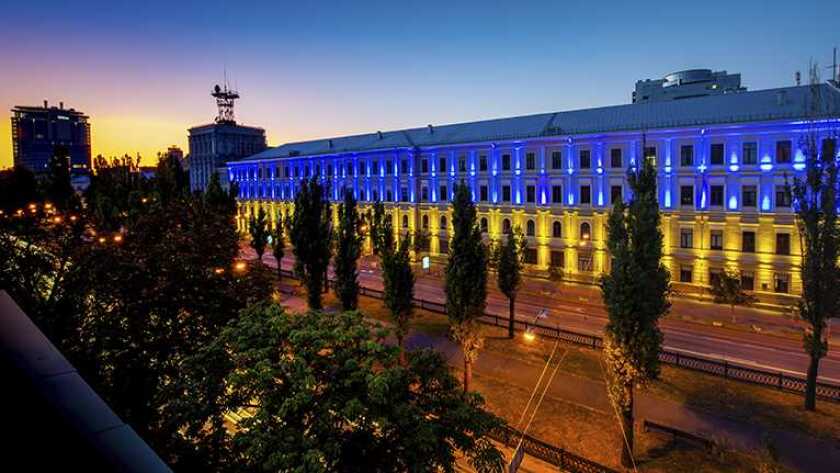The investment, backed by banks from Slovenia and supplied by Slovenian company Iskratel, will help expand connectivity to more than 1.3 million people across Ukraine.
Ukrtelecom CEO Yuriy Kurmaz said: “Owing to this effective financial partnership, we continue to accelerate the development of a modern digital telecom infrastructure in Ukraine, bridging the digital divide in the country and enabling the use of digital services in people’s daily routines.”
The project, announced in September 2021, called for passive optical network (PON) technology to connect 530,000 homes in 300 localities over the course of a three-year build – at speeds up to 1Gbps.
Now Ukrtelecom, based in Kyiv (pictured), says that 25% of that investment has been spent. “This marks the first step of our deployment of fibre infrastructure in Ukraine with an eye towards 60% growth in our fibre broadband subscriptions and revenues,” said Kurmaz.
“Our cooperation with our Slovenian partners demonstrates that Ukrtelecom can source long-term capital on international markets on competitive rates and implement large-scale infrastructure projects.”
Ukrtelecom said the financial partnership with the banks, including Slovenia’s SID banka, offers long-term capital on the international market and is part of the banks’ efforts to enable Slovenian companies to expand their businesses to markets outside of the European Union under competitive conditions.
Damijan Dolinar, president of the management board at SID banka, said: “I am pleased to see Slovenian banks financing the project together, which proves that the banks are successfully cooperating for the benefit of Slovenian companies.”
Last year Ukrtelecom deployed more than 13,600km of new fibre networks and expanded its gigabit PON (GPON) infrastructure in 1,200 cities and villages. The modernised networks have unlocked the full potential of digital services in the public and private sectors.






